In “The Initiation,” a 1959 educational film probably shown in high school health classes, the American girls who were its intended audience learned that lesbianism—and lesbians--lurked everywhere. The film begins at the end of a little party where an innocent known as “the Deb,” short for “debutante,” has been invited for the sole purpose of making her into a lesbian. If she were not such an innocent, of course, she might have picked up a big clue at the beginning of the evening that something was up. Most of the women have shoulder-length hair and are dressed in conventional feminine clothes. But one—who seems to be running the group like a quasi-cult—wears a men’s suit, has cropped hair, and puffs on a pipe.
We join the party at its culmination, as one of these sexual outlaws takes the innocent “Deb” upstairs; the others draw straws to see which one of them will have the pleasure of initiating “the Deb” into sexual practices, to which she will then, the narrator implies, become addicted. Not surprisingly, the single mannish lesbian pulls the short straw. As the other women pin the struggling “Deb” down to a bed, this sinister figure who toggles between genders—hereafter known as “the Dyke”—performs a sexual act that the narrator leaves to our imagination.
In this Cold War scenario, “the Dyke” is technically a butch. But the filmmakers identify her as an imitation man who has cultivated a harem of femmes bewitched by her sexual prowess. But the film does not portray “the Dyke” as a lover: instead, she is a compulsive, narcissistic rapist who cannot get what she wants except by trapping and converting other women. “The Dyke” makes it clear who lesbians are: a menace to society who are in deep need of psychological treatment—preferably in a locked ward somewhere. This was where many lesbians did, in fact, end up, before the 1970s, undergoing barbaric treatments until they renounced homosexuality.
And yet, silly and homophobic as it is, to modern eyes, “The Initiation” is also weirdly…hot? Much like the pulp novels about lesbians available in any 1950s drugstore, the film offers a glimpse of a sexy, hidden world of butches and femmes that was an undeniable and pleasantly dirty alternative to conventional heterosexuality. In fact, in the working-class bar world, butches were in charge of sexual pleasure, even though femmes were full participants in weaving the erotic web that made that pleasure possible.
Tantalizingly, the plot of “The Initiation” infers that if one sexual experience could be transformative, even addictive, not only did every woman have the potential to be a lesbian, but she also might want to act on it. So, the film unintentionally leaves one question wide open: why is lesbian sex bewitching? How is it that “the Dyke” has managed to turn so many women away from sex with men?
What the film can’t imagine between lesbians is love—the love butches and femmes had for each other, the love they made, and the love for the spaces—at bars like the Sea Colony, Laurel’s, Bagatelle, the Duchess—they carved out for themselves. At these bars, butches and femmes paid for over-priced, watered-down drinks in exchange for the privilege of being together, touching, making love, and inhabiting the selves they had to hide from the world. Historians have written about that working-class bar world of butches and femmes, one continually under siege from the police, but it is the personal essays—by Amber Hollibaugh, Cherríe Moraga, Leslie Feinberg, Patrick Califia, Minnie Bruce Pratt, Gayle Rubin, and others—that often give us the most authentic sense of, not just the struggles, romance, and pleasure of a pre-gay liberation world of public sex, but of the political consciousness that butch-femme community created. It was steeped in suffering but also infused with joy.
The author who has done as much, or more, than any other to preserve our lesbian political past, and the history of our very existence, is my guest for this final episode of Pride Month, 2023. Joan Nestle has been a critical voice in lesbian feminism since the 1970s and a beautiful femme who embraced the unrespectable as a path to truth and justice. A teacher, erotic writer, activist, and founder of Brooklyn’s Lesbian HerStory Archives, Joan has a new selection of essays out last year from Sinister Wisdom Press, A Sturdy Yes of a People. It’s a first-person political history of living a queer life that not only returns us to the pre-liberation roots of the lesbian and feminist community but links LGBTQ+ struggles to the fight for justice that marginalized people everywhere deserve.
You can download this podcast here or subscribe for free on Apple iTunes, Spotify, Google Podcasts, or Soundcloud. And if you liked this episode, please join us!
Program notes:
The opening sequence is from “Lesbian Initiation,” a Cold War educational film intended to persuade audiences that lesbians prey on straight women.
Listeners can explore the rich collections at the Lesbian Herstory Archives, which are open for research to all.
Amber Hollibaugh explores butch-femme culture in her collection of essays, My Dangerous Desires: A Queer Girl Dreaming Her Way Home (Duke University Press, 2000.) The collection includes the famous essay about lesbian eroticism, co-written with Cherríe Moraga, “What We’re Rolling Around in Bed With.”
For fictionalized accounts of butch-femme culture in Greenwich Village, listeners may wish to read Ann Bannon’s Beebo Brinker series.
Joan namechecks Elizabeth Lapovsky Kennedy and Madeline D. Davis’s history of butch-femme bar culture Boots of Leather, Slippers of Gold: The History of a Lesbian Community (Routledge, 1994.)
You can read more about the Gay Activists Alliance Firehouse here.
Joan recounts the experience of her family being discriminated against at a dude ranch because they were Jewish: this was a common experience before the 1970s. You can read more about this in Britt P. Tevis’s article, “`Jews Not Admitted:’ Anti-Semitism, Civil Rights, and Public Accommodation Laws,” Journal of American History (March 2021.)
Joan speaks about her friend Mabel Hampton, an iconic lesbian and civil rights activist from Harlem: you can read excerpts from Joan's interview with Ms. Hampton in Signs, Volume 18, Number 4, Summer, 1993.
Joan and I talked briefly about the so-called radical feminist “sex wars:” one good book of essays written by women who defended public sex alongside Joan is Ann Snitow, Christine Stansell, Sharon Thompson, Powers of Desire (Monthly Review Press, 1983.)


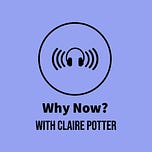

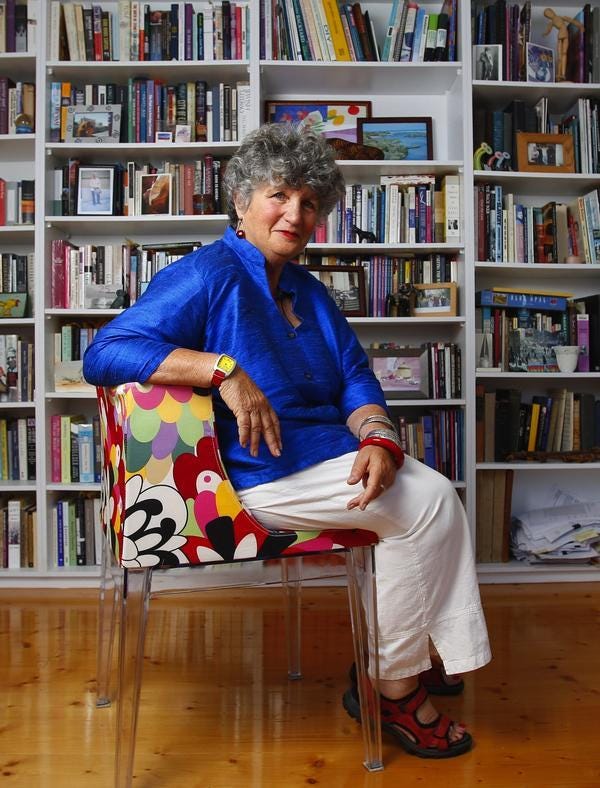

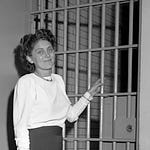
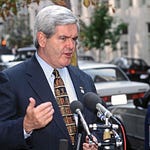


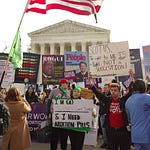
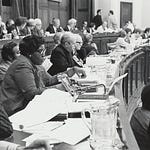


Share this post